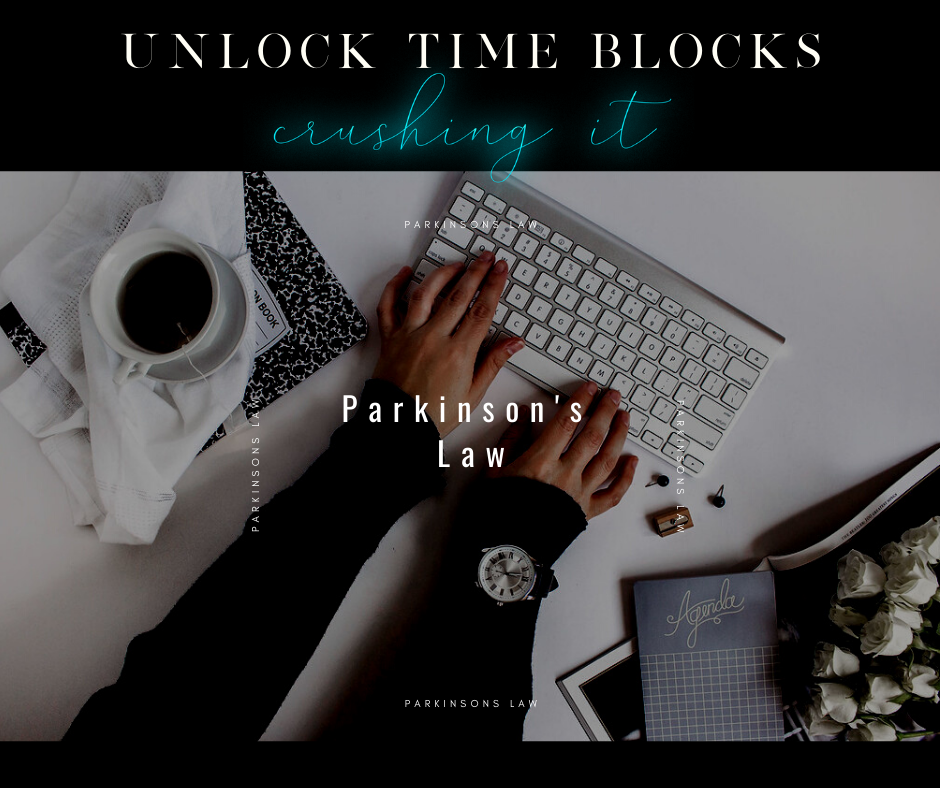 Have you ever heard of Parkinson’s Law? This is a law that states, “Work expands to fill the time available for its completion.” This is a statement made by Cyril Northcote Parkinson in an article he wrote for The Economist which later became a book called Parkinson’s Law: The Pursuit of Progress.
Have you ever heard of Parkinson’s Law? This is a law that states, “Work expands to fill the time available for its completion.” This is a statement made by Cyril Northcote Parkinson in an article he wrote for The Economist which later became a book called Parkinson’s Law: The Pursuit of Progress.
Basically, this statement means that anytime you can cut your task time shorter, you should. For example, if you know a task will take one hour, don’t give yourself two weeks to do it. Give yourself one hour to do it and get it done. If you give yourself two weeks, one of two things will happen. You’ll know deep down it’s not “due” until the time it needs to be done, wasting time and procrastinating. Or, you’ll stretch out all the work and make it last the entire two weeks – even when you don’t need to – as you stress out about the due date.
- Cut the Time in Half – If you think something is going to take two hours to get done, try to assign yourself half that time to get it done. This is a test because you may be great at knowing exactly how much time it takes or you may be bad at it and choose a longer time than needed. If you really can get these tasks done in half the time, that’s even better.
- Get Rid of Distractions – You are more likely to be able to get any given task done quickly if you don’t have a ton of distractions. For example, if you are creating a spreadsheet, don’t check your email until you’re done creating the spreadsheet. Don’t divide your time. Focus on that one thing you need to do and only that.
- Avoid Open-Ended Deadlines – Often, we tend to give ourselves open-ended deadlines for many things. For example, email checking, social media checking, and so forth. If you let yourself do that anytime you want to, you’ll end up doing that all the time – to the detriment of your schedule. You could even say the same thing for personal goals. If you want to lose weight, it’s better if you set a number goal and give yourself a due date to reach that goal. Of course, you want to make it realistic, but you don’t want to give yourself an open-ended deadline.
- Plan it Out – Whenever you see a task you need to schedule, think realistically about how fast you can get it done instead of thinking about how “long” it will take. Think about how fast you can do it and what that will look like. Then schedule it appropriately instead of stretching it out. Give yourself just enough time to get it done.
Think about all the things you do in life that have a default schedule which probably shouldn’t. For example, why are all meetings an hour long? Why are you on the phone for so long? How can you cut these types of things down to shorter times so that you can get the most out of your day as possible?
While you’re here, Grab these FREE Easy Peasy Profit Habits for Procrastinators!
A Brief Overview of Workday Productivity 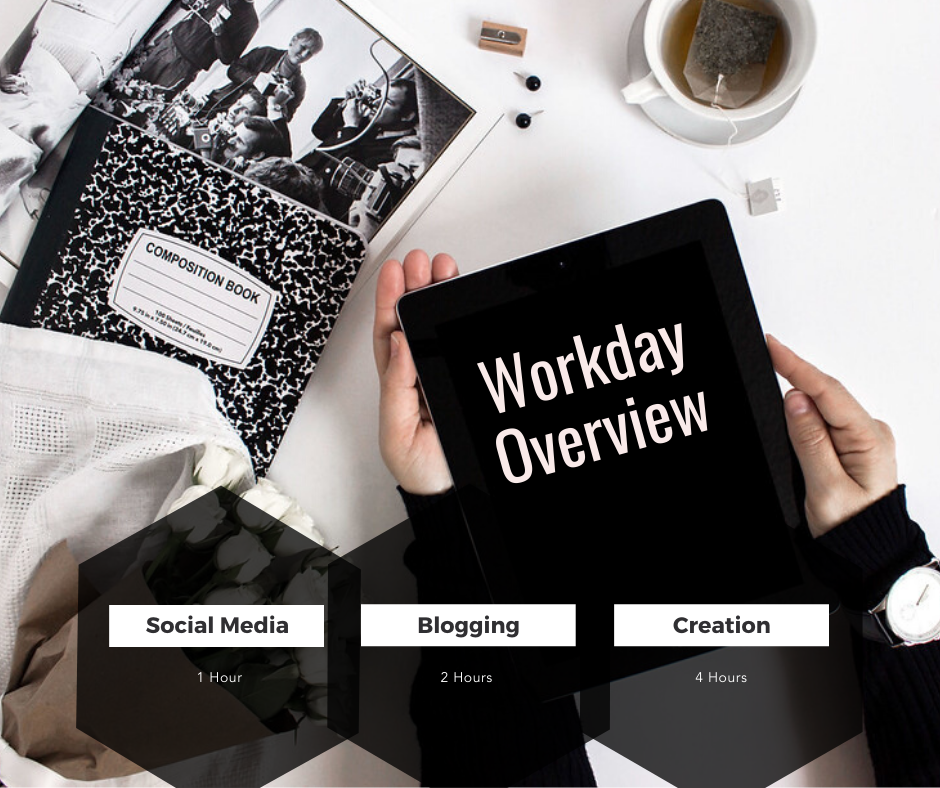
Having a productive workday requires a clear understanding of your goals, not just your business goals, but all your goals and how they work together to create your entire life. Workday productivity is all about what you do during the scheduled workday. How you handle your productivity during that time is going to inform how you get to spend the time you have left after work.
Understand that the normal 8-hour workday was not created because that’s how long people are productive. It was just an arbitrary number, born from the 16-hour workdays that owners of factories needed people to work to stay productive 24/7. The 8-hour day became a thing because advocates divided the day into three and called for 8 hours of rest, 8 hours of recreation, and 8 hours of work per day to have a more balanced and fair life.
The truth is, people just aren’t productive for 8 hours per day. The truth is, most of us are only productive for about 3 hours per day. The rest of the time, we’re struggling to pay attention, focus, and work harder. But mostly after those three hours of productive labor, many of us are struggling if we punch a clock.
But, if you are a freelancer or own your own business, you’re in luck. You can redefine the work day to suit your needs, your niche, and the time you have available to perform the work. Keep in mind that most people are only productive for those three hours a day. That doesn’t mean you only need to work three hours a day. In some cases, you may want to work five hours a day because that’s what you have available and that’s how much work you must do.
Schedule Your Life, Then Your Work
It’s important to understand wants and needs before doing this. But you need to schedule your must-dos in your life before you schedule work. For example, if you have children who will be home until they go to school at 8 am, it’s going to be hard for you to talk on the phone until after they leave.
Combine Social Life with Needed Tasks
Everyone needs to eat, sometimes you need to shop, and you need to exercise. This is always a great time to schedule your social life too. You can enjoy lunch with a friend or your spouse so much more than if you ate a fast sandwich at your desk. Plus, you’re likely to eat much more healthily if you have someone with you. A nice walk in the park, a trip to the gym, or even a ballroom dancing class with your spouse are all great ways to get in movement and spend time with your loved ones.
Match a Task with Your Best Time
When you look at the tasks that need to be done, it’s better if you match the task with the best time to accomplish it the fastest that you can. For example, if you need to do data entry, the best time to do that is when there will be no interruptions and you’re wide awake, so you don’t get tired. If you don’t have interruptions, then you’ll be able to do the task faster. If you need to make phone calls, you’ll want to do that when no one is trying to talk to you or you’re not trying to do other things too.
When you can put what’s important first, figure out how to combine social with your physical needs, and match tasks with the best time of day to do them based on your energy levels, ability to focus, and the type of task it is, you’ll become that much more focused which will make you even more productive.
What You Work on is More Important Than How Fast You Work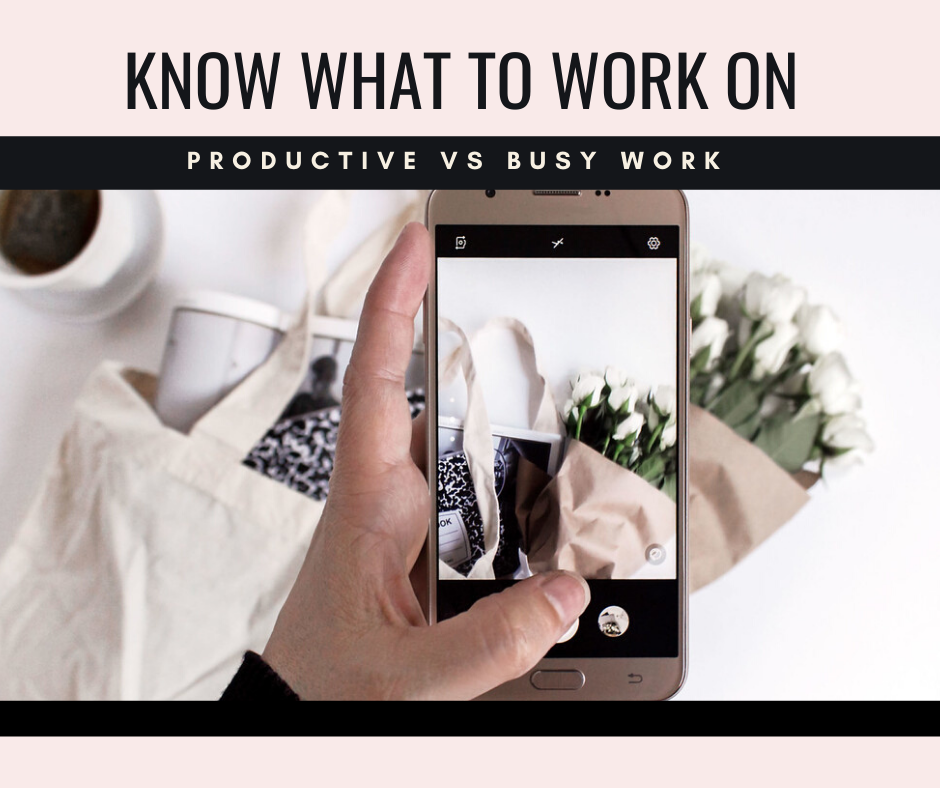
While you want to get things done in a timely manner, it’s more important what work you do – especially if it’s work that only you can do instead of busy work that anyone can do. If you really want to be productive and efficient, it’s all about doing the right thing, at the right time, in the best way for that task. Plus, being aware enough to know when something is just busy work and when something is productive work.
- Establish a Routine for Each Part of Your Day – Your day should be divided into sections based on what’s happening that you cannot control. For example, time with your kids, with your spouse, and without them. This is going to help you decide what to work on and when to work on it. But more than that, you need to do something to signal to your mind it’s time to work and be productive.
- Get Up & Get Dressed – While working in your PJs sounds amazing, the truth is for some of us, you need some signal to your brain that it’s time to work. Getting up and getting dressed will make you feel more awake. If you like wearing makeup, go ahead and put some on. If you like showering to wake up, do that too. If you plan to exercise, consider exercising first, then getting ready for your day.
- Eat a Healthy Breakfast – Being healthy is an important part of your day that will help make you more productive. Take the time to eat a healthy breakfast. Once you’ve eaten your healthy breakfast, gotten ready for the day, maybe exercised a little, you’re going to feel much more energetic for working and you’ll be able to decide what you’re going to work on better.
- Choose Your Tasks Based on Your Goals – When you choose the tasks you need to do, the tasks you want to put into your schedule as part of your workday routine, you need to ask yourself what your goals are for your workday. Do you need to earn a certain amount of money each day? If you do, and you have money-making tasks to do, frontload those so that you’re getting those out of the way first.
- Turn Off Distractions – To be most productive, you should focus only on that one task at a time rather than doing more than one thing. For example, if you’re going to work on your money-making task of posting social media updates for your client, you want to avoid checking your personal Facebook or other social media accounts while you’re doing that.
By choosing the right thing to work on, the thing that will give you the results that you are looking for and that helps you reach your goals, will make more difference for you than being super-fast at doing things that don’t matter.
Don’t forget to grab the FREE Easy Peasy Profit Habits for Procrastinators!

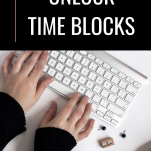
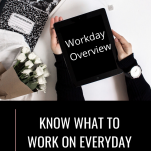


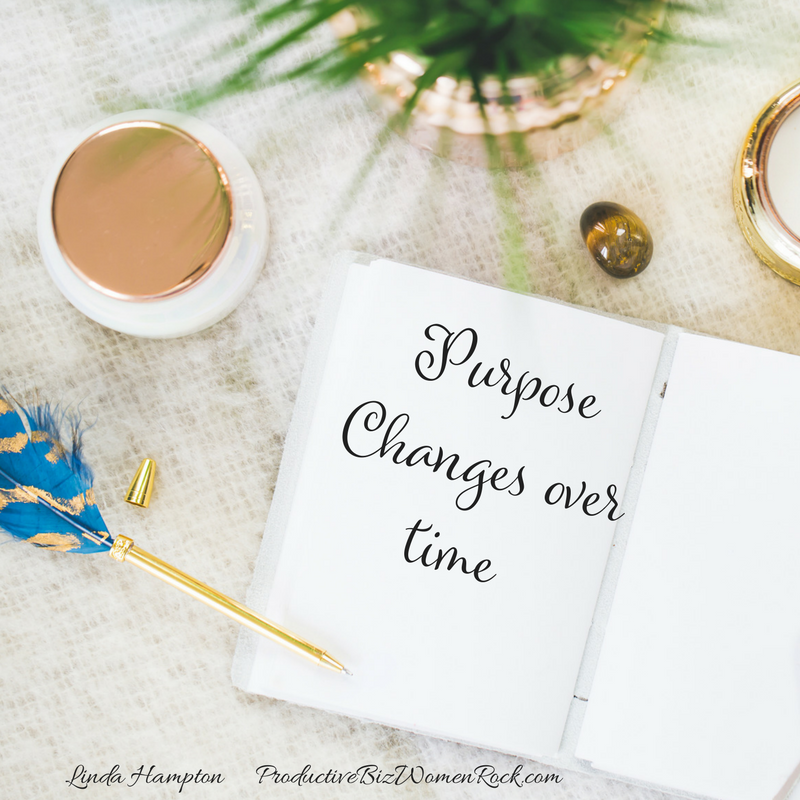

Leave a Reply